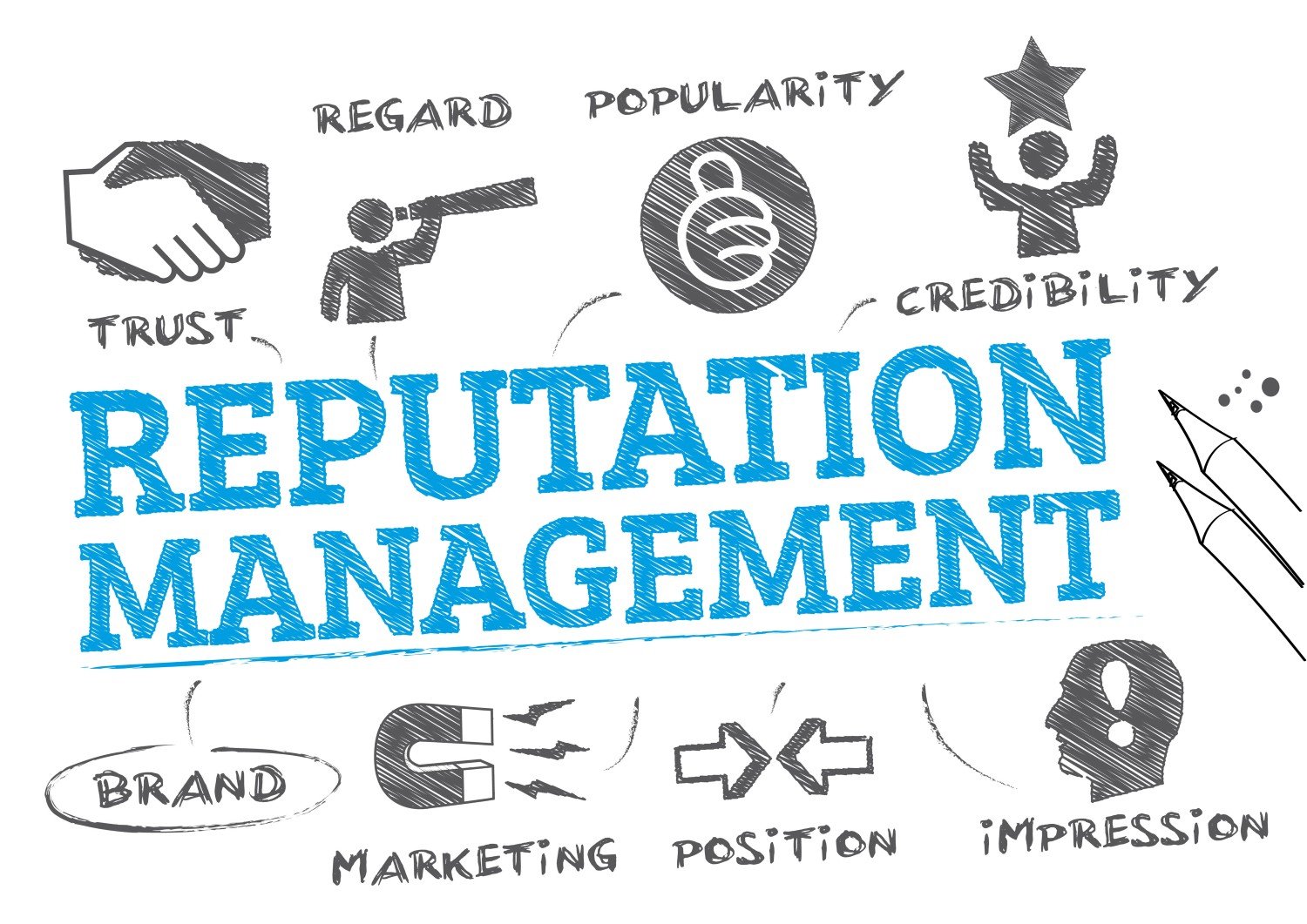Essential Strategies for Online Reputation Management
“When it comes to online reputation in a digital world, it’s make or break. Up to 94% of consumers say a single negative review showing up on the first page of Google can be a red flag to avoid a company.”
This article will explain online reputation management. It will provide a clear guide to help you understand reputation management in digital marketing as it applies to your business.
Online Reputation Management Meaning:
When we define online reputation management (ORM), we define it as follows. ORM involves monitoring, influencing, and controlling your business's online narrative across various platforms. It encompasses activities aimed at cultivating a positive perception by addressing feedback, managing reviews, and engaging with digital communities. In essence, ORM works to shape public perception and improve brand credibility by strategically managing online interactions.
The Core Components of ORM
ORM is built on several foundational components that work together to create a cohesive strategy. Monitoring digital mentions is essential, as it involves tracking where and how your brand is discussed online. Influencing the narrative requires engaging directly with your audience to steer conversations in a positive direction.
Ultimately, controlling the narrative involves managing how information is shared and ensuring that your brand is accurately portrayed across all platforms.
The Importance of Online Reputation Management
Understanding the significance of ORM is crucial for any business aiming to succeed in the digital marketplace. A positive online reputation can lead to increased trust, higher customer retention, and improved sales. Conversely, a negative reputation may deter potential customers and harm your business's growth prospects.
A strong online presence can boost your brand's credibility and authority. This helps you stand out as a leader in your industry.
Challenges in Online Reputation Management
Managing your online reputation comes with its own set of challenges. The vastness of the internet means that information about your brand can spread rapidly, making it difficult to control. Negative reviews or comments can quickly gain traction if not addressed promptly. Moreover, the anonymity of online interactions sometimes emboldens individuals to post misleading or damaging content. Navigating these challenges requires vigilance and a strategic approach to ORM.
How Does Online Reputation Management Work?
ORM is a multifaceted process that requires a proactive approach to monitoring and enhancing your brand's online presence. It's essential to have an online reputation management strategy. Here's our online reputation management guide:
Monitor Online Mentions
The first step in effective ORM is to monitor your brand vigilantly across digital platforms. This involves tracking brand mentions, reviews, and comments on social media, review sites, forums, and blogs. This is because “Negative feedback can significantly harm a brand if left unmanaged, with many online consumers stating they’d abandon a purchase after just one bad experience” (Weronika,2024)
Tools such as Google Alerts, Mention, and Hootsuite are helpful in this process, offering real-time updates and insights into your online reputation. Our diy online reputation management All-in-one solution, which we at 7th-Meridian offer in our AI Business Toolkit, is also beneficial for any business looking to enhance its online reputation strategy.
By keeping track of where your brand is mentioned, you can quickly address any misinformation or negative feedback.
Analyze Audience Sentiment
Beyond simply monitoring mentions, it's crucial to analyze the sentiment behind them. Understanding whether the conversation around your brand is positive, negative, or neutral helps tailor your response strategy. Sentiment analysis tools can provide valuable insights into customer feelings and opinions, enabling you to tailor your messaging accordingly. This knowledge allows you to address potential issues and maintain a favorable brand image preemptively.
Responding to Feedback
Google aims to create an environment that fosters the highest value exchange between businesses and consumers. This means that being thoughtful and responding to feedback, such as Google Reviews, is a crucial action for your business (check out what Google has to say about it). Engaging with feedback, both positive and negative, is critical in ORM. For positive feedback, express gratitude and encourage further engagement. For negative feedback, respond promptly and professionally, addressing concerns and offering resolutions. This approach not only mitigates potential damage but also demonstrates your commitment to customer satisfaction. Ensuring your responses are consistent in tone and message is vital for maintaining credibility.
Pro Tip: Never respond more than twice publicly. Always try to resolve the situation with a negative review and offer to take the conversation to a private channel to mitigate fallout and harm to your brand.
Building and Maintaining Relationships
Effective ORM extends beyond responding to feedback; it's about building and maintaining lasting relationships with your audience. Engage with your followers regularly through social media and other digital platforms. Personalized interactions and acknowledging loyal customers can foster a sense of community and belonging. These efforts enhance customer loyalty and can turn satisfied clients into brand advocates. Brand advocates are what you want, customers that sing your praises, it's word of mouth , it's free, and it’s the best kind of advertising there is! “An effective brand advocate can raise brand awareness, increase consumer trust, and help you convert more customers.” (Influencity, 2024)
Online Reputation Management Best Practices
The following online reputation management activities/strategies are essential to crafting a robust online reputation management plan:
Create High-Quality Content
Content creation is at the heart of ORM. By producing valuable, informative, and engaging content, you establish your brand as a trusted authority in your industry. This not only attracts organic traffic but also fosters trust and credibility. Consider incorporating blogs, videos, infographics, and case studies into your content strategy to cater to diverse audience preferences. High-quality content can also enhance your SEO efforts, boosting your online visibility.
Leverage SEO Techniques
Search engine optimization (SEO) is integral to enhancing your online visibility and reputation. Implementing targeted keywords, optimizing website structure, and building quality backlinks can elevate your search engine rankings, ensuring your brand is easily discoverable by potential customers. Moreover, SEO helps you control which content appears in search results, allowing you to highlight positive information and bury negative content.
Engage on Social Media
Social media platforms are powerful tools for ORM. They enable direct interaction with your audience, offering opportunities to address concerns, share updates, and reinforce your brand values. Regularly post content that resonates with your audience, and actively participate in conversations to foster a positive online community. Utilizing social media analytics can help you understand audience preferences and tailor your content strategy to meet their needs. These actions are critical to ensure your social media online reputation management is thriving.
Develop a Brand Advocacy Program
Encouraging satisfied customers to become brand advocates can significantly enhance your ORM efforts. Develop programs that incentivize customers to share their positive experiences, such as referral bonuses or exclusive access to new products. Advocates can help spread positive word-of-mouth, amplifying your brand's reach and reputation. These programs can also deepen your relationship with your most loyal customers, ensuring they remain engaged with your brand.
Online Reputation Management Techniques
Encourage Customer Reviews
Positive reviews significantly influence consumer decisions. Encourage satisfied customers to share their experiences on review platforms. Respond to reviews to demonstrate your appreciation and address any issues raised. This practice not only improves your reputation but also provides valuable insights into customer preferences. Offering incentives such as discounts for future purchases can motivate customers to leave reviews.
Monitor Competitors
Keeping an eye on your competitors' online activities can inform your ORM strategy. Analyze their strengths and weaknesses, and identify opportunities to differentiate your brand. This competitive intelligence can guide your content creation and engagement efforts, ensuring your brand stands out in the digital landscape. Additionally, learning from competitors' mistakes can help you avoid similar pitfalls in your own ORM strategy.
Utilize Online Reputation Management Tools
Investing in ORM tools can streamline your efforts, offering advanced analytics and reporting features. Tools such as Brandwatch, Reputology, and ReviewTrackers offer comprehensive insights into your online reputation, enabling you to make informed, data-driven decisions. These tools can automate the monitoring process, alerting you to any significant changes in your online perception. Leveraging technology in this way ensures your ORM strategy is both efficient and effective.
Implement a Proactive Crisis Management Plan
Preparation is key when it comes to potential crises. Develop a proactive crisis management plan that outlines procedures for addressing negative publicity. Identify potential risks and formulate responses in advance, ensuring a swift and coordinated effort when necessary. Having a dedicated team responsible for crisis management can also streamline communication and prevent further escalation.
Best Practices for Online Reputation Management
Be Transparent and Authentic
Authenticity fosters trust. Be transparent in your communications, admitting mistakes and outlining corrective measures. This approach not only humanizes your brand but also strengthens customer loyalty. Demonstrating honesty and integrity can differentiate your brand in a crowded marketplace, encouraging consumers to choose you over competitors.
Develop a Crisis Management Plan
Despite your best efforts, negative incidents may still occur. Having a crisis management plan in place can help mitigate potential damage. Develop protocols for addressing negative publicity to ensure a swift and coordinated response. Training your team in crisis communication is vital to ensure they handle situations with professionalism and empathy.
Consistently Update Your Strategy
The digital landscape is ever-evolving, necessitating regular updates to your ORM strategy. Stay informed of industry trends and emerging technologies to ensure your approach remains relevant and effective. Regularly review your ORM efforts to identify areas for improvement and capitalize on new opportunities. This iterative process ensures that your strategy evolves in tandem with the digital environment.
Foster a Culture of Positive Engagement
Encourage a culture within your organization that prioritizes positive customer engagement. Train employees to handle interactions with care, ensuring that every touchpoint enhances your brand's reputation and fosters a positive image. By fostering an internal culture of respect and responsiveness, you can ensure that your external communications reflect these values, reinforcing your ORM efforts.
Bringing it all together
Online reputation management is a critical component of digital marketing that will significantly impact your the success of your business. By implementing the strategies and techniques outlined in this guide, you can cultivate a positive online reputation that enhances your brand's credibility, attracts new customers, and fosters lasting relationships.
For e-commerce store owners and local business proprietors alike, a proactive approach to ORM is essential for navigating the complexities of the digital marketplace. By prioritizing your online reputation, you can drive organic traffic, improve conversion rates, and secure a competitive edge in your industry. Embrace the dynamic nature of online interactions, and continually refine your ORM strategy and activities to meet the evolving needs of your business and customers.



